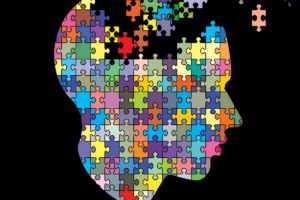
Diagnosed with Cancer? Your two greatest challenges are understanding cancer and understanding possible side effects from chemo and radiation. Knowledge is Power!
Learn about conventional, complementary, and integrative therapies.
Dealing with treatment side effects? Learn about evidence-based therapies to alleviate your symptoms.
Click the orange button to the right to learn more.
- You are here:
- Home »
- Blog »
- side effects ID and prevention »
- Cancer Therapy and Mental Health
Cancer Therapy and Mental Health
Discussions of cancer therapy and its side effects are often focused on physical limitations. For instance, chemotherapy, while one of the most effective cancer treatments across the board, has lasting effects on the patient’s physical health. This includes brain damage and memory loss, commonly referred to as chemo brain, and increased risk of cardiovascular disease.
Mental Health-
- Life Purpose = Brain Health, Dementia, Mild Cog. Impairment
- Managing Mental Health as a Cancer Survivor
Heart Health-
- Heart Disease- Everything you need for heart-health
- Evidence Heart Disease is “Weak”
- PQQ, Anti-Cancer, Pro-Heart Health
- Collagen-Skin, Muscle, Joint, Brain and Heart Health
PTSD-
- Emotional Support for the Multiple Myeloma Survivor with PTSD
- Multiple Myeloma Side Effects- PTSD, Mind-Body Therapy
- Surviving Myeloma- Post-Cancer Fear
The fact of the matter is conventional cancer therapies can have dangerous long-term side effects. Unfortunately, many cancer patients are in the unfortunate position of choosing between chemo and its side effects and no treatment at all. It’s seen as a risk worth taking.
In addition to physical side effects caused by chemo and radiation, cancer therapies have been known to affect mental health as well. Another, perhaps less discussed, necessary evil of oncology. In Cancer Thearapy Advisor, Johnathan Goodman writes about studies done on rates of mental illness within those who have been diagnosed with cancer- see the article linked below.
“In an effort to determine the causal factors associated with the increased risk of psychological issues in this survivor population, researchers evaluated data from 5021 participants involved in the Childhood Cancer Survivor Study The participants were assessed The median age of cancer diagnosis was 8.3 years, the median age at baseline for this study was 24.3 years, and the median age for second follow-up was 32 years. There was an increased prevalence of cardiovascular, endocrine, and pulmonary conditions related to cancer treatment among patients with high scores on the stress measurements. Participants with a pulmonary condition were 40% more likely to have symptoms of depression. The authors do not seriously discuss whether these psychological issues are related to cancer diagnosis and treatment, and may themselves be causal factors of the noted physical ailments. The authors conclude that chronic health conditions may indicate which patients are in need of psychological screening. Other interventions, such as physical exercise, may help to improve both physical and psychological health in this population.”
One of the reasons this could be so prevlant in the cancer community is the trauma associated with a life threatening disease. To go a step farther from phychological issues, studies have been done on the rates of post traumatic stress syndrome in cancer patients. The emotional turmoil from having cancer or undergoing cancer treatiment can be so sevire that patients can devlop a trauma response. One of these studies written about on the Oncology Nursing Society website explains its commonality and steps to treat PTSD in cancer patients.
“Post-traumatic stress disorder (PTSD) is often associated with survivors of military combat or natural disaster, such as refugees or veterans. However, patients with a current or past cancer diagnosis, and their loved ones, are at riskfor developing cancer-related PTSD (CR-PTSD). PTSD develops over time as the brain associates certain senses with a traumatic event.
Cancer diagnoses expose patients and families to a series of life-altering, traumatic experiences: initial diagnosis, treatment, and acute and long-term physical reactions such as
- hair loss,
- body image changes,
- pain, and fatigue.
Even after remission, survivors could develop CR-PTSD from a fear of their cancer recurring…
Alexander Emerson
- Freelance Writer
- Cancer Caregiver
Psychological Stress and Chronic Illness Among Survivors of Cancer
“Chronic health conditions related to previous cancertreatments may cause emotional distress among survivors, according to a study published in Cancer.1..
In an effort to determine the causal factors associated with the increased risk of psychological issues in this survivor population, researchers evaluated data from 5021 participants involved in the Childhood Cancer Survivor Study (ClinicalTrials.gov Identifier: NCT01120353). The participants were assessed for symptoms of anxiety, depression, and post-traumatic stress…
The median age of cancer diagnosis was 8.3 years, the median age at baseline for this study was 24.3 years, and the median age for second follow-up was 32 years.
There was an increased prevalence of cardiovascular, endocrine, and pulmonary conditions related to cancer treatment among patients with high scores on the stress measurements. Participants with a pulmonary condition were 40% more likely to have symptoms of depression…
The authors conclude that chronic health conditions may indicate which patients are in need of psychological screening. Other interventions, such as physical exercise, may help to improve both physical and psychological health in this population…”


